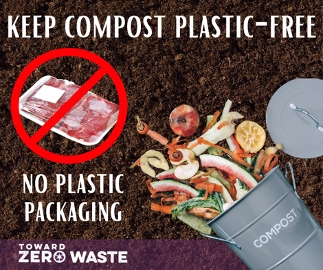
Bryan and Kristen Hancock at their Cle Elum property
Get to Know Bryan Hancock, Account Manager
I have been in a customer facing position for nearly 30 years. I enjoy the relationship aspect of my current and previous jobs and pride myself on my communication, follow through and customer service. I love visiting facilities, communicating with our team members, and solving problems for our customers. I am proud to be in the recycling industry assisting a wide variety of companies responsibly reduce their waste.
I revel in a good local IPA and a good laugh! I have been married for almost 20 years to Kristen, my best friend and co-worker. We recharge our batteries at our Cle Elum riverfront property with our 20-year-old son, friends, and family in the summertime. I was born, raised and reside in the Skagit Valley with no plans to leave.
Let’s Talk about Food Waste
According to the EPA, nearly 40% of all packaged food waste ends up in landfills. Food waste in landfills contributes to methane production, a greenhouse gas 80 times more harmful than carbon dioxide for 20 years after it is released. Let’s reduce this together!
We specialize in landfill diversion and manage a wide variety of packaged and non-packaged, pre- and post-consumer food waste:
- Produce
- Assorted groceries (no glass)
- Frozen goods
- Pet food
- Beverages
- Production scraps
- and more!
We operate Skagit Soils , a fully licensed composting facility, and partner with local anaerobic digesters to meet the organic waste needs of local producers.
Watch Our Depackager In Action
Our Tiger Depack machine can process 8-10 tons of food waste per hour!
Contact us to schedule a Free Waste Audit to evaluate your needs.
Washington’s Organics Management Law IS LIVE!
2024 Business Collection Requirements Now In Effect
Businesses producing at least eight cubic yards of organic waste are now required to sign up for organic materials management services if they are located in THE BOMA MAP.
Organic material waste includes:
- Food waste from fruits, vegetables, meats, dairy products, fish, nuts, seeds, grains, and similar materials from the storage, preparation, cooking, handling, selling, or serving of food for human consumption.
- Landscape and gardening debris, including lawn clippings, small branches, sawdust, and untreated or unpainted wood.
- Other organic waste, such as manure, food processing waste, and wood waste.
Parts of Snohomish, Skagit, and Whatcom counties are in the BOMA.
Learn more at the Department of Ecology’s website.
Food Storage Tip
As part of our ongoing effort to Prevent Food Waste, we offer this Tip-of-the-Month to get the most out of your grocery dollars.

Use it
Bread on the counter has the shortest life span — usually a week or less. Keeping it in the fridge will extend its freshness.
Store it
Freezing will keep bread fresh for months. When packing, squeeze the air out of a zip-top bag. Slice whole loaves to easily grab slices as you need them.
Revive / Use it Up
Use stale bread for French toast, bread pudding, breadcrumbs, or croutons – or revive a dried-out loaf by soaking it in cold water and baking at 300°F for 10-15 minutes.
With thanks to The Central Ohio Food Waste Initiative






